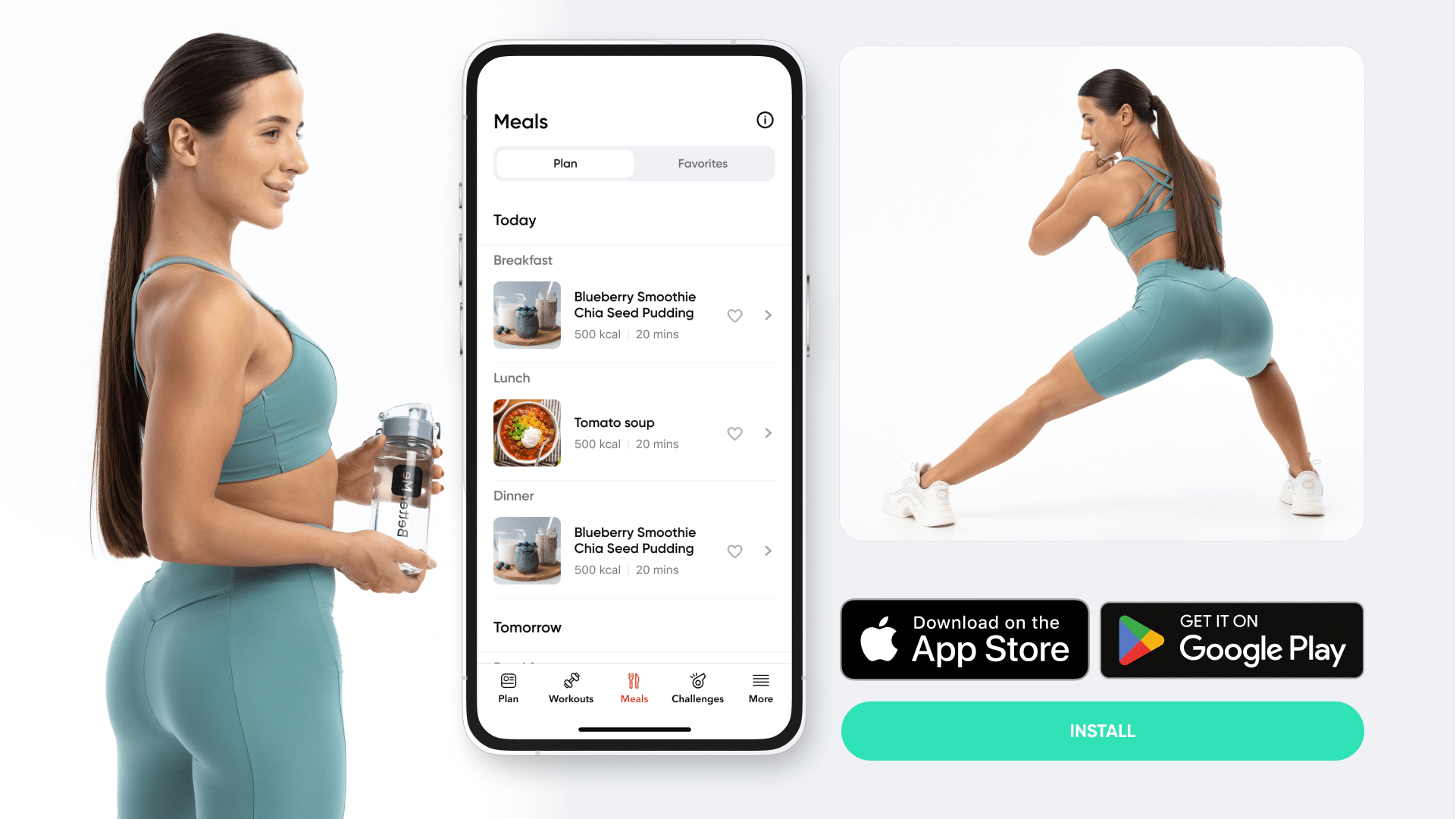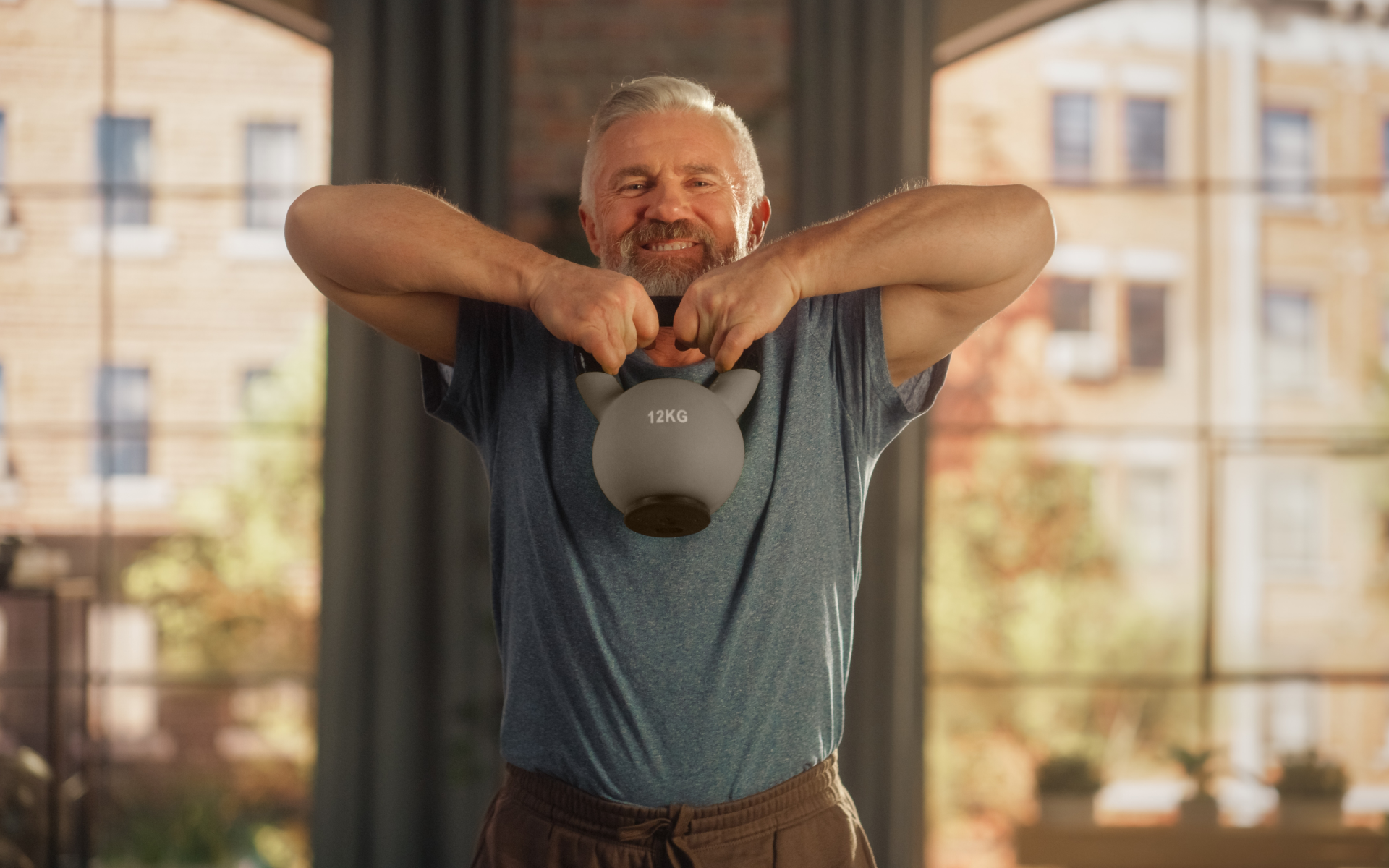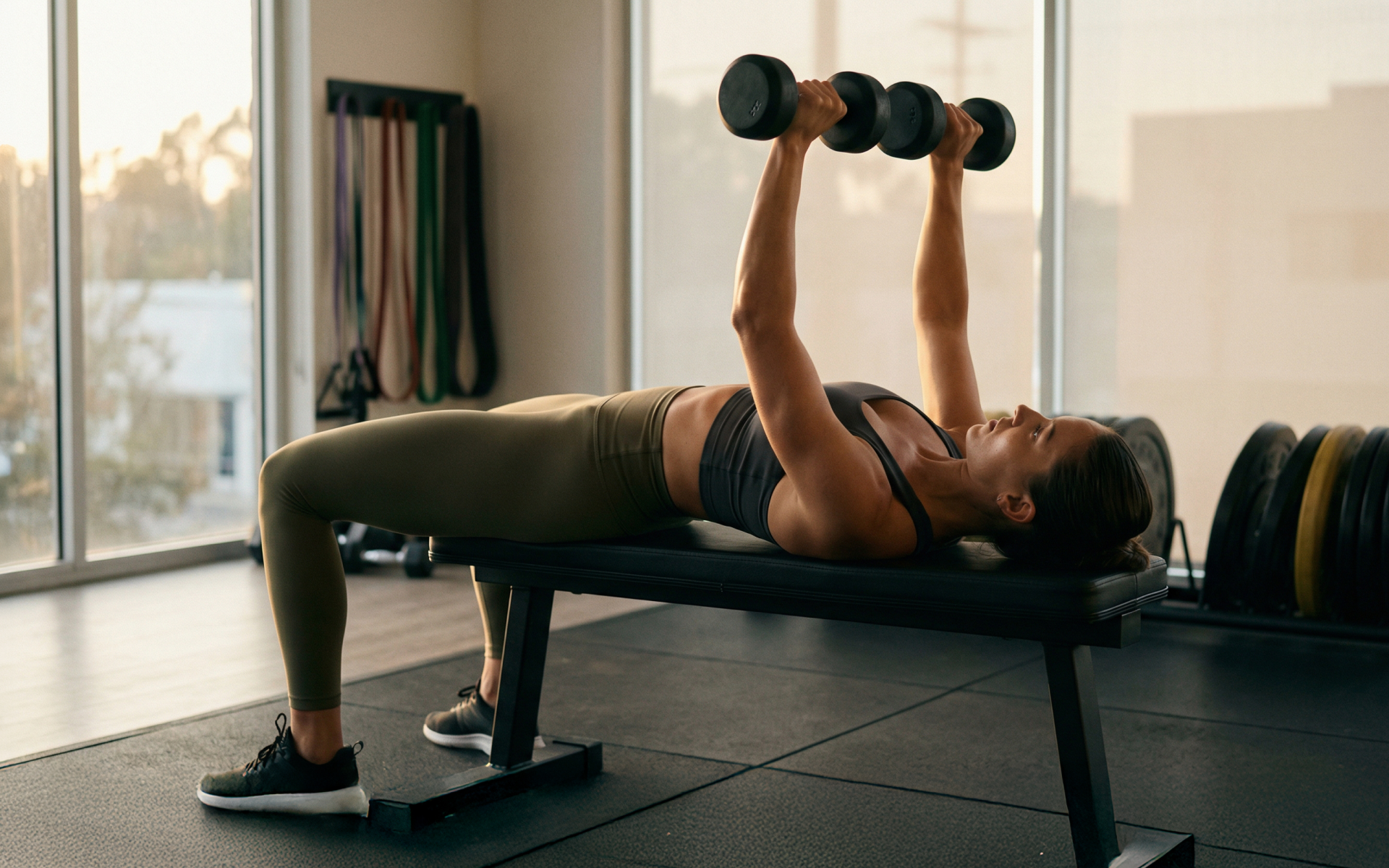For many, swimming is purely recreational. What they don’t realize is that swimming can be a great cardio workout that can help with weight loss. It can also be a full-body low-impact workout that can help strengthen your body. Swimming also improves your cardiorespiratory endurance.
The best part is you can tailor your workout plan according to your fitness goals and endurance. As swimming is an activity many people enjoy, turning it into a workout shouldn’t seem like a challenge. That being said, if you’re new to swimming, you may need to build core strength before you dive in, so to speak. Today we’ll explore a swimming workout plan for beginners and give you a few tips to maximize swimming for weight loss.
Beginner Swimming Workout Plan
Whether you enjoy swimming or not, it may be a great way for you to help shed those extra pounds alongside other forms of exercise. Swimming is a cardio activity that increases your heart and respiratory rates. It should be noted that research has shown that swimming or exercising for 30 minutes every day reduces your risk of heart disease, stroke, and type 2 diabetes (5).
How many calories can you burn swimming? A 125-pound individual burns approximately 300 calories swimming vigorously for half an hour (4). In comparison to running at 5 miles per hour or walking, swimming is a better calorie burner.
In addition to weight loss, there are other potential benefits of swimming, including:
- Works your whole body, activating most major muscle groups in the body.
- Due to its low impact, it can be a great option for people with arthritis, multiple sclerosis, injuries, and disabilities.
- Boosts your mood and is a great stress reliever.
- Helps you sleep better.
Most pools are 25 yards long (one length). Make sure you can swim for 100 yards without stopping to be able to comfortably navigate these workout plans. If you’re completely new to swimming, you should take lessons with a swim instructor. You can also do planks and hollow holds to build upper-body strength as well as lifts and squats to help you build leg strength.
You’ll need a comfortable swimsuit, watch, fins, and a kickboard. Start gradually and slowly increase the intensity of your workout. As your body gets used to vigorous swimming, you can mix things up by doing sprints for longer distances and HIIT.
If you wish to cinch your waist, tone up your bat wings, blast away the muffin top – our fitness app was created to cater to all your needs! BetterMe won’t give excess weight a chance!
Below are some sample workout plans you can try out:
Beginner Swim Workout Plan 1
Goal: Build endurance
Distance: 600 yards
- 2 x 50 yards crawl warm-up. You can rest in between if you wish.
- 4 x 25 yards crawl counting strokes per length.
- 4 x 50 yards crawl with 30 seconds of rest between each 50 yards.
- 4 x 25 yards crawl counting strokes per length. If possible, keep an even number of strokes.
- 2 x 50 crawl cool-down. Swim slowly and allow your body to relax.
Beginner Swim Workout Plan 2
Goal: Build endurance, get used to pushing yourself through the water
Distance: 1,000 yards
- 8 x 25 yards flutter kick with a board with 15 seconds of rest between lengths.
- 4 x 50 yards alternate laps of freestyle (odds) and backstroke (evens) with 20 seconds of rest between 50-yard distances.
- 8 x 25 yards alternate sprint kicks (odds) and easy kicks (evens) with 10 seconds of rest between lengths.
- 60 seconds rest.
- 8 x 25 yards freestyle with 15 seconds of rest between lengths.
- 8 x 25 yards alternating sprint freestyle (odds) and easy backstroke (evens) with 10 seconds of rest in between lengths.
Beginner Swim Workout Plan 3
Goal: Improve endurance, breathing control, and turning control
Distance: 1,200 yards
- 300 yards crawl warm-up. Don’t rest during the swim.
- 4 x 50 yards crawl alternating breathing each length with a 15-second rest period between. Breathe every 4th stroke on the first 25 yards, and breathe every 2nd stroke on the second 25 yards. You’ll need to count your strokes as you swim to know on which stroke you breathe.
- 200 yards crawl, no breath approaching the wall. You can breathe in any pattern during the swim, but don’t breathe during the 4 strokes of approaching the end of the pool.
- 10 x flip turns. Practice taking 2 strokes and doing a flip turn then another 2 strokes.
- 4 x 50 yards choice of strokes with a 15-second rest period between distances. You can choose one type of stroke and stick with it or mix it up.
- 300 crawl cool-down. Swim slowly and let your body relax.
Read more: Indoor Cycling Workout Plan – A Dynamic Program for Every Rider
Intermediate Swimming Workout Plan
Once you’ve built endurance and mastered proper breathing techniques, you can gradually increase the intensity of your workouts. Remember that the more intense your swimming workout is, the more calories you’ll burn.
As the intensity increases, so can the distance. That being said, make sure you’re ready to move on to a more intense workout regime before you press forward. Don’t be in a hurry to up your intensity and only do so if you feel your body can handle the stress. Over time, you can try out a running and swimming workout plan or an advanced sprinting swimming workout plan.
Below are intermediate swimming workout plans for weight loss:
Intermediate Swim Workout Plan 1
Goal: Master breath control, gain consistency
Distance: 1,600 yards
- 200 yards crawl warm-up with a 30-second rest period between lengths.
- 8 x 25 yards wind sprints, resting for 30 seconds between lengths. Swim each length without taking a breath.
- 2 x 200 yards crawl counting strokes per length. Try to keep all lengths at an equal number of strokes.
- 8 x 25 yards wind sprints, resting 30 seconds between lengths. Complete each length without taking a breath.
- 2 x 200 yards crawl counting kick timing. Count 3 kicks for every arm stroke.
- 200 yards freestyle cool-down. Swim slowly and relax your body.
Intermediate Swim Workout Plan 2
Goal: Sprinting
Distance: 1,800 yards
- 6 x 50 yards flutter kick on board with 20 seconds of rest between lengths.
- 3 x 100 yards alternating freestyle (odds) and backstroke (evens) with 30 seconds of rest between.
- 6 x 50 yards alternating sprint kick (odds) and easy kick (odds) with a 15-second rest period between each 50 yards.
- 60 seconds rest.
- 6 x 50 yards freestyle with a 20-second rest period between laps.
- 3 x 100 yards freestyle with 30 seconds of rest between laps.
- 6 x 50 yards alternating sprint freestyle (odds) and easy backstroke (evens) with 15 seconds of rest between laps.
Intermediate Swim Workout Plan 3
Goal: Develop all 4 strokes
Distance: 2,000 yards
- 400 yards warm-up, alternating lengths of crawl and other strokes. Make every other length crawl and the other lengths a mix of the 3 other strokes.
- 4 x 100 yards Individual medley (IM) alternating sprints with a 30-second rest period in between. On the first IM sprint, use fly and breaststroke, and on the second IM sprint, use freestyle and backstroke.
- 2 x 100 butterfly. Rest for 30 seconds in between. Swim the 2nd 100 yards faster than the first.
- 2 x 100 backstroke with a 30-second rest period in between. Swim the 2nd 100 yards faster than the first.
- 2 x 100 breaststroke with 30 seconds of rest between each. Swim the 2nd 100 yards faster than the first.
- 4 x 100 yards IM with 30 seconds of rest in between. Keep the timing consistent for each 100 yards.
- 200 yards cool-down. Use all 4 strokes. Swim slowly.
BetterMe is your fast-track ticket to a long-lasting weight loss! Tailor your fitness journey and maximize your results with just a couple of swipes!
Can Swimming Help You Achieve a Ripped Physique?
Yes, swimming can be an effective way to get ripped. It provides numerous benefits that contribute to muscle development and fat loss. Here’s how swimming can help:
- Full-Body Workout: Swimming engages nearly all the major muscle groups, including the core, arms, back, and legs. The resistance of the water provides a natural form of strength training, helping to strengthen and build muscle.
- Cardiovascular Fitness: It’s also an excellent cardiovascular workout that increases heart rate and improves endurance. Enhanced cardiovascular fitness helps burn calories and reduce body fat, both of which are essential for a ripped physique (11).
- Low-Impact Exercise: Unlike high-impact activities such as running, swimming is gentle on the joints and reduces the risk of injury. This allows for more frequent and sustained workouts without putting any undue strain on the body.
- Calorie Burn: Swimming can burn a significant number of calories, depending on the intensity and duration of the workout. When it’s combined with appropriate nutritional intake, it helps create a caloric deficit, which is necessary for fat loss (9).
- Versatility in Training: Swimming allows for various training styles, from high-intensity interval training (HIIT) to steady-state cardio. Incorporating different strokes and techniques can target specific muscle groups and keep your workouts engaging.
- Improved Flexibility: The range of motion required in swimming strokes can improve overall flexibility and joint mobility, which contributes to better muscle definition and posture (10).
Incorporating swimming into your fitness routine, combined with a balanced diet and consistent strength training, can help you achieve a lean, muscular, and ripped physique.
How to Get the Most out of Your Swimming Workout Routine
To get the most out of your routine, there are additional things you may need to do. As much as you may be consistently following your workout plan, it won’t add up if you’re also eating in a calorie surplus and filling your diet with fries and pizza for dinner every night. Here are a few ways you can maximize your swimming workout plan for weight loss.
Warm-up
Warming up remains fundamental when it comes to any form of exercise, swimming included. A warm-up prepares your body for intense activity by elevating your heart rate and body temperature and increasing blood flow to your muscles. It also reduces your risk of injury and muscle soreness (3).
You can warm up by doing dynamic stretching movements such as forward bends, lunges, stretches, arm swings, leg swings, and quad rocking. You can also jog or do squats, jumps, or press-ups. 5 to 10 minutes should be enough. Also, do another 5 to 10 minutes of cool-down and static stretching exercises after you get out of the water.
Watch Your Technique
Your swimming technique determines how your body moves through the water. Proper form means you swim faster, stay streamlined, and move more efficiently through the water. Consider swim drills if you haven’t properly mastered your form.
Here are 4 things you need to remember:
- Avoid lifting your head or looking up.
- Engage your major muscle groups (including your back, shoulders, quads, abs, and glutes) and pull your ribs in toward the center as you swim.
- Ensure your head, neck, and navel are aligned in a horizontal plane with your knees, hips, and feet.
- Fully extend your hands, straighten your wrists, and close your fingers.
Focus on Your Breathing
With running or cycling, breathing is typically easy, but for swimming, this isn’t the case. Most beginners try to hold their breath underwater instead of exhaling. Others breathe while their faces are underwater.
First, you need to be able to keep your face in the water as you swim as this reduces resistance. After you master this, you need to work out when and how to inhale and exhale. You should exhale with your face in the water. Don’t exhale then inhale very quickly as this will cause a buildup of carbon dioxide in your lungs.
When you turn to breathe, your lungs should be empty and ready for fresh air. You should forcefully breathe out after a complete breath. Remember, there are no pauses. Swim classes and practice will help you master your breathing.
Eat Right
If you’re incorporating swimming into your workout plan to lose weight, you also need to eat right. The general principle of weight loss is that you need to burn more calories than you consume to create a calorie deficit (6).
This means you need to cut back on fast foods such as fries, refined carbs such as white bread, salty snacks, added sugars, and carbonated drinks. Instead, you should aim to eat lots of lean protein, vegetables, fruits, and complex carbs such as whole-grain wheat and brown rice. You should also drink lots of water. In addition to keeping your weight in check, a proper diet also helps with recovery (7).
Incorporate Lifting in Your Swimming Workout
Lifting is a great way to increase the intensity of your workouts and burn more calories. It also helps break the monotony of your swimming workout. Strength training helps build strength and improve endurance (8). It can also help reduce the risk of swimming-related injuries as you’re increasing your muscle mass and strength.
Most swimming and lifting workout plans involve weightlifting two to three times a week combined with your swimming workout routine. Due to the intensity of such a workout plan, you need to make sure to get enough rest to allow your muscles to recover fully (2). Get at least 7 to 9 hours of sleep and don’t push yourself too hard.
Get a Swimming Buddy
When working out, you might easily feel demotivated. A great way to deal with this is to get a workout buddy. They will help you stay motivated, consistent, and keep you accountable (1).
Don’t Forget to Have Fun
It’s easy to get caught up and forget to enjoy yourself. Swimming can be fun, so let go and do exactly that – enjoy yourself. In this way, you won’t fall into the pattern of stressing over weight loss and being too hard on yourself. All you have to do to see progress is stay consistent and appreciate the small wins you have along the way.
Read more: Is a 7 Day Workout Plan The Best Choice For You?
FAQs
Is swimming after a workout good?
Yes, swimming after a workout is highly beneficial. It serves as an effective cool-down activity when it’s done with lower intensity.
Can swimming make you taller?
While swimming cannot increase your height, it can improve your posture and spinal alignment. Swimming promotes:
- Spinal Decompression: The horizontal position in swimming can help stretch the spine (13).
- Muscle Strengthening: Strengthening the core and back muscles can support better posture.
- Flexibility: Enhanced flexibility from regular swimming can contribute to an elongated appearance.
Should I swim every day?
Swimming every day can be beneficial, as long as you listen to your body and avoid overtraining. Not only can regular swimming enhance cardiovascular and muscular endurance (11), it can also help you maintain a healthy weight and body composition (12). In addition, swimming can reduce stress and improve mood.
To prevent fatigue and injury, you should consider:
- Mixing high-intensity and low-intensity sessions.
- Incorporating rest or lighter swimming days to allow muscle recovery.
Should I swim when I’m on my period?
Yes, swimming during your period is generally safe and can even be beneficial. Consider the following:
- Relief from Cramps: The buoyancy and gentle movements in swimming can help alleviate menstrual cramps.
- Improved Mood: Exercise, including swimming, releases endorphins that can enhance mood and reduce PMS symptoms.
- Hygiene: Use tampons, menstrual cups, or period swimwear to stay comfortable and maintain hygiene. Ensure you change these products regularly and rinse yourself off after swimming to avoid irritation.
The Bottom Line
Swimming is a great cardio activity that has great calorie-burning potential and offers several health benefits. While most people think of swimming as recreational and not as a workout, it offers the best of both worlds. So, if you’ve been looking to find a fun, adventurous workout, choose the swimming workout plan above that works for you. You must also remember to eat healthy meals, drink plenty of water, and get enough rest.
DISCLAIMER:
This article is intended for general informational purposes only and does not serve to address individual circumstances. It is not a substitute for professional advice or help and should not be relied on for making any kind of decision-making. Any action taken as a direct or indirect result of the information in this article is entirely at your own risk and is your sole responsibility.
BetterMe, its content staff, and its medical advisors accept no responsibility for inaccuracies, errors, misstatements, inconsistencies, or omissions and specifically disclaim any liability, loss or risk, personal, professional or otherwise, which may be incurred as a consequence, directly or indirectly, of the use and/or application of any content.
You should always seek the advice of your physician or other qualified health provider with any questions you may have regarding a medical condition or your specific situation. Never disregard professional medical advice or delay seeking it because of BetterMe content. If you suspect or think you may have a medical emergency, call your doctor.
SOURCES
- 3 Reasons to Work Out With a Friend (2021, cdc.gov)
- 8 Reasons to Take a Rest Day (2018, acefitness.org)
- Aerobic exercise: How to warm up and cool down (2021, mayoclinic.org)
- Calories burned in 30 minutes of leisure and routine activities (n.d., health.harvard.edu)
- Exercise and Cardiovascular Health (2003, ahajournals.org)
- Fat loss depends on energy deficit only, independently of the method for weight loss (2007, pubmed.ncbi.nlm.nih.gov)
- ISSN exercise & sports nutrition review update: research & recommendations – Journal of the International Society of Sports Nutrition (2018, jissn.biomedcentral.com)
- Resistance Training is Medicine: Effects of Strength… : Current Sports Medicine Reports (2012, journals.lww.com)
- Exercise for weight loss: Calories burned in 1 hour (n.d., mayoclinic.org)
- Effect of regular swimming exercise on the physical composition, strength, and blood lipid of middle-aged women (2015, ncbi.nlm.nih.gov)
- Swimming and All-Cause Mortality Risk Compared With Running, Walking, and Sedentary Habits in Men Walking, and Sedentary Habits in Men (2008, core.ac.uk)
- Regular swimming exercise improves metabolic syndrome risk factors: a quasi-experimental study (2021, ncbi.nlm.nih.gov)
- Is Swimming Good for Back Pain? (2022, sciatica.com)










